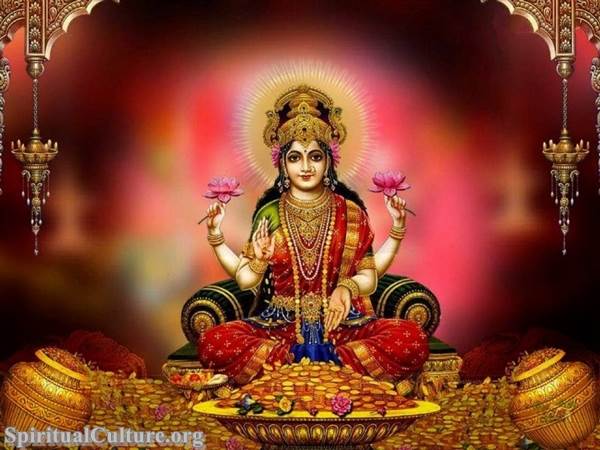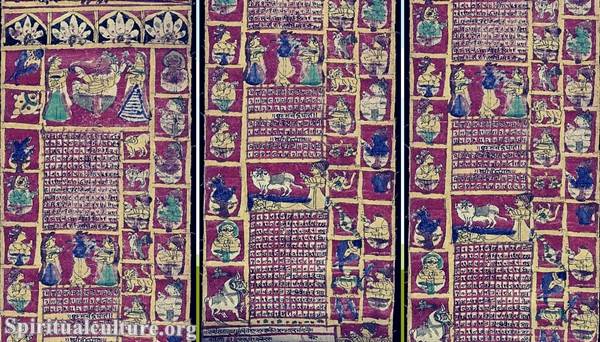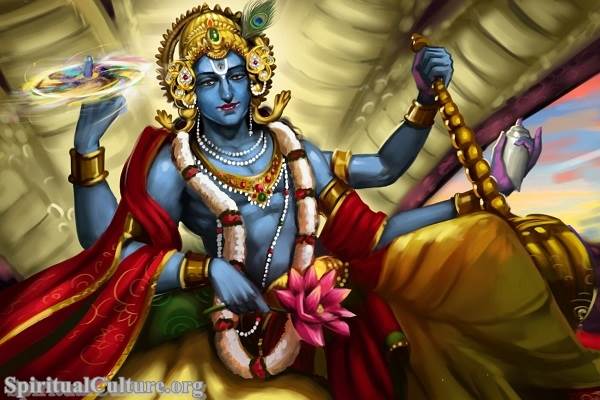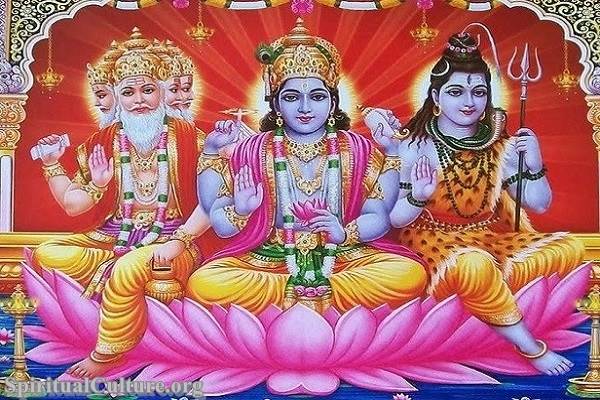Lakshmi is the goddess of wealth, prosperity, beauty, and good fortune. Her name is derived from the Sanskrit word “Lakshya,” meaning aim or goal, and she is often depicted in a manner that signifies abundance and auspiciousness.

Here are some key aspects of Goddess Lakshmi and her symbolism:
Goddess of Wealth:
Lakshmi is primarily known as the goddess of wealth and prosperity. She is associated with material and spiritual wealth, symbolizing abundance, affluence, and the blessings of good fortune.
Consort of Lord Vishnu:
Lakshmi is considered the divine consort of Lord Vishnu, one of the principal deities in Hinduism. The union of Vishnu and Lakshmi symbolizes the harmonious balance between the preserving and nurturing aspects of the divine.
Four Arms:
In many depictions, Goddess Lakshmi is shown with four arms, each holding symbolic items. These may include a lotus (Padma) in one hand, representing purity and beauty, a symbol of self-realization, a pot of gold or coins (symbolizing wealth), and gestures of protection and compassion.
Lotus Seat:
Lakshmi is often shown seated on a lotus flower. The lotus symbolizes purity, transcendence, and the ability to rise above worldly challenges without being tainted by the impurities of the material world.
Elephant and Owl:
In some depictions, Lakshmi may be accompanied by an elephant and an owl. The elephant symbolizes strength, royalty, and fertility, while the owl represents wisdom. Both creatures are associated with prosperity and good fortune.
Auspicious Symbols:
Lakshmi is often depicted with symbols of auspiciousness, such as the Shrivatsa mark on her chest, symbolizing Vishnu’s presence, and the red kumkum (vermilion) dot on her forehead, signifying her married status.
Vimana (Celestial Chariot):
Lakshmi is sometimes depicted riding on a celestial chariot pulled by swans or elephants, symbolizing divine grace and the ability to travel freely between spiritual and material realms.
Veneration during Diwali:
Lakshmi is widely venerated during the festival of Diwali, where devotees seek her blessings for wealth and prosperity. It is believed that Lakshmi visits homes on the night of Diwali, and people often light lamps and perform prayers to welcome her.
Spiritual Wealth:
While Lakshmi is associated with material wealth, her significance goes beyond the material realm. She is also considered a bestower of spiritual wealth, including virtues such as love, compassion, and devotion.
Gaja Lakshmi and Ashta Lakshmi:
Lakshmi is often conceptualized in various forms. Gaja Lakshmi is associated with the symbolism of elephants and represents royal power, while Ashta Lakshmi encompasses the eight forms of wealth: prosperity, progeny, courage, knowledge, and victory.
Goddess Lakshmi is widely worshiped across Hindu households and temples, and her presence is invoked for prosperity, well-being, and spiritual abundance. She plays a central role in Hindu devotional practices and is considered a benevolent and compassionate goddess.



